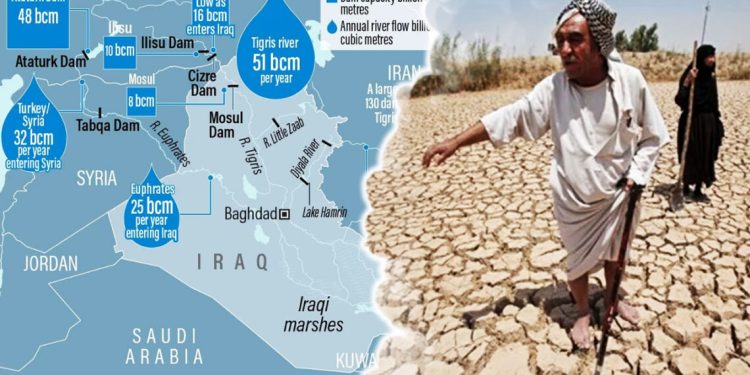NEWS CENTER – Turkey’s government has approved the construction of the “Cizre Dam” on the Tigris River in the Kurdish-majority Şırnak (Şirnex) province, a project that has been the subject of debate for years. The dam, which will be the tenth on the Tigris and the second-largest after the Ilısu Dam, is expected to submerge many settlements, roads, and gardens.
The Tigris River flows through Şırnak’s Cizre district and along the borders of the Iraq Kurdistan Region before emptying into the Persian Gulf. With a length of 2,800 kilometres, it is considered the longest river in the Middle East. The “Cizre Dam” project, initially tendered on 24 May 2013, had been suspended due to various disputes.
The project was finally accepted on 16 August, although the commencement date for construction remains unknown. Due to the dam, many species living in the Tigris River face the threat of extinction. Both the Federal Kurdistan Region government and the Iraqi government will face a significant water crisis upon the dam’s completion. The dam, to be built 40 metres high with a storage capacity of 381 million cubic metres, is projected to be completed within three years.
The decision to proceed with a dam, a project which symbolises ecological destruction, is the first act of the ruling Justice and Development Party (AKP) in Şırnak following the 14 May elections. This has drawn attention. According to the project, the dam is expected to be built below the Kasrik (Qesirk) town, which separates Cudi and Gabar Mountain, and the lower part of the Misûriyê village. It has been stated that many roads, gardens, and settlements will be submerged by the dam.
The construction of the dam also aligns with broader concerns about building more large dams in the region, as highlighted by environmental organisations. A report by Save the Tigris emphasises the threats to Southern Iraq and the increase in drought and water scarcity, calling for a halt to such “false solutions.”
Thus, the approval of the “Cizre Dam” project, coming in the wake of the contentious Ilısu Dam, not only raises immediate local concerns but also adds to the growing discourse on sustainable water management and ecological preservation in the broader region.




